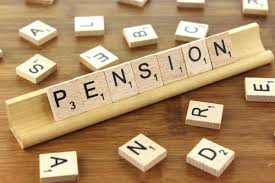Recent pension hike will speed up the pension bomb

MG News | April 18, 2022 at 10:07 AM GMT+05:00
April 18, 2022 (MLN): Immediately after assuming office, Prime Minister Shahbaz Sharif’s first order of business was to announce an increase in the salaries and pensions of government officers. Justifying the move, former finance minister Miftah Ismail went on to ask the private sector to similarly announce a pay hike for its employees to help people meet their monthly expenses during the high inflationary period.
Although the motives and arguments for the increase read lofty, there is just one problem: who will pay for this increase? Pensions alone account for more than 6% of the country’s total current expenditures (to note: this does not include the total pensions bill of the armed forces since the accounting treatment for that is done under a different head.)
With another round of hike, the burden on the government for the increase will rise by at least Rs13 billion for the remaining fiscal year. Pakistan’s public sector pension system is in dire need of a complete overhaul as it has become an unfunded liability for the government. The country follows a legacy pension system whereby it has no effective mechanism in play to finance the pension bill and instead relies solely upon the receipts earned through taxes.
To put the pension expense in perspective, it is pertinent to mention here that the country’s pension bill is growing an estimated 25% per annum and the amount alone is equal to roughly 70% of the total development expenditure (Public Sector Development Programme).
As per a study carried out by the Pakistan Institute of Development Economics (PIDE), at this growth rate, the country’s total pension bill will account for nearly 56% of the total current expenditure in the next three decades by 2050. Keeping in view the growth in revenues and the pension bill, the government will not have adequate fiscal resources to pay for the bill by the end of the next decade.
The government’s recent move seems ill-prepared and has been done in haste with political motives at the center instead of taking into account the real facts on the ground. As per official estimates, the Punjab Government’s 95% of revenue goes into paying the pension bill. On the other hand, Railway pensions account for nearly 70% of the institution’s revenue.
The mechanism currently in place to finance pensions is broken and needs a complete rethink. For starters, on average, the pension increases on an average during the last 10 fiscal years have been 8.8%YoY compared to average inflation of 6.6%YoY. The way the pension system is set up, the pension benefit is larger compared to the benefit from the service of a government employee.
The pension schemes across various tiers of government tend to adopt the decisions of the federal government on pension-related matters resulting in huge fiscal challenges for some organizations where there are revenue shortfalls or where the organization isn’t a going concern / has been closed.
There are some ‘discontinued’ entities that are being run only to manage the pensions of retirees.
Another issue facing the pension system is that there is no separate legislation to govern the matters pertaining to pensionary benefits. However, there are some rules and a series of executive orders to govern entitlements and procedures. This has created room for several pension reform-related initiatives being ‘undone’ when challenged. As such, this area largely remains a ‘regulatory/legislative orphan’.
With an ageing population, the country’s pension bill is expected to reach alarming levels. In face of lucrative pension terms and amounts, more and more government and military employees are opting for early retirements as they are already guaranteed adequate funding to live a relaxing life. This trend has picked up a fast pace in the last decade or so ever since the political governments in order to secure a voter base have started doling out benefits and hikes to pensioners and government employees without first ensuring how that increase will be funded.
If no policy interventions are taken immediately, the pension costs will likely be much larger than the circular debt and the government will be forced to borrow funds from external sources i.e., commercial loans, etc to meet these pension expenses. Non-payment could lead to protests from government employees risking the overall government machinery before bringing it to a halt.
The numbers tell an alarming story. The pension bill is a ticking time bomb and hasty increases will only speed up the process.
Copyright Mettis Link News
Related News
| Name | Price/Vol | %Chg/NChg |
|---|---|---|
| KSE100 | 134,299.77 290.06M |
0.39% 517.42 |
| ALLSHR | 84,018.16 764.12M |
0.48% 402.35 |
| KSE30 | 40,814.29 132.59M |
0.33% 132.52 |
| KMI30 | 192,589.16 116.24M |
0.49% 948.28 |
| KMIALLSHR | 56,072.25 387.69M |
0.32% 180.74 |
| BKTi | 36,971.75 19.46M |
-0.05% -16.94 |
| OGTi | 28,240.28 6.19M |
0.21% 58.78 |
| Symbol | Bid/Ask | High/Low |
|---|
| Name | Last | High/Low | Chg/%Chg |
|---|---|---|---|
| BITCOIN FUTURES | 118,140.00 | 119,450.00 115,635.00 |
4270.00 3.75% |
| BRENT CRUDE | 70.63 | 70.71 68.55 |
1.99 2.90% |
| RICHARDS BAY COAL MONTHLY | 97.50 | 0.00 0.00 |
1.10 1.14% |
| ROTTERDAM COAL MONTHLY | 108.75 | 108.75 108.75 |
0.40 0.37% |
| USD RBD PALM OLEIN | 998.50 | 998.50 998.50 |
0.00 0.00% |
| CRUDE OIL - WTI | 68.75 | 68.77 66.50 |
2.18 3.27% |
| SUGAR #11 WORLD | 16.56 | 16.60 16.20 |
0.30 1.85% |
Chart of the Day
Latest News
Top 5 things to watch in this week
Pakistan Stock Movers
| Name | Last | Chg/%Chg |
|---|
| Name | Last | Chg/%Chg |
|---|



